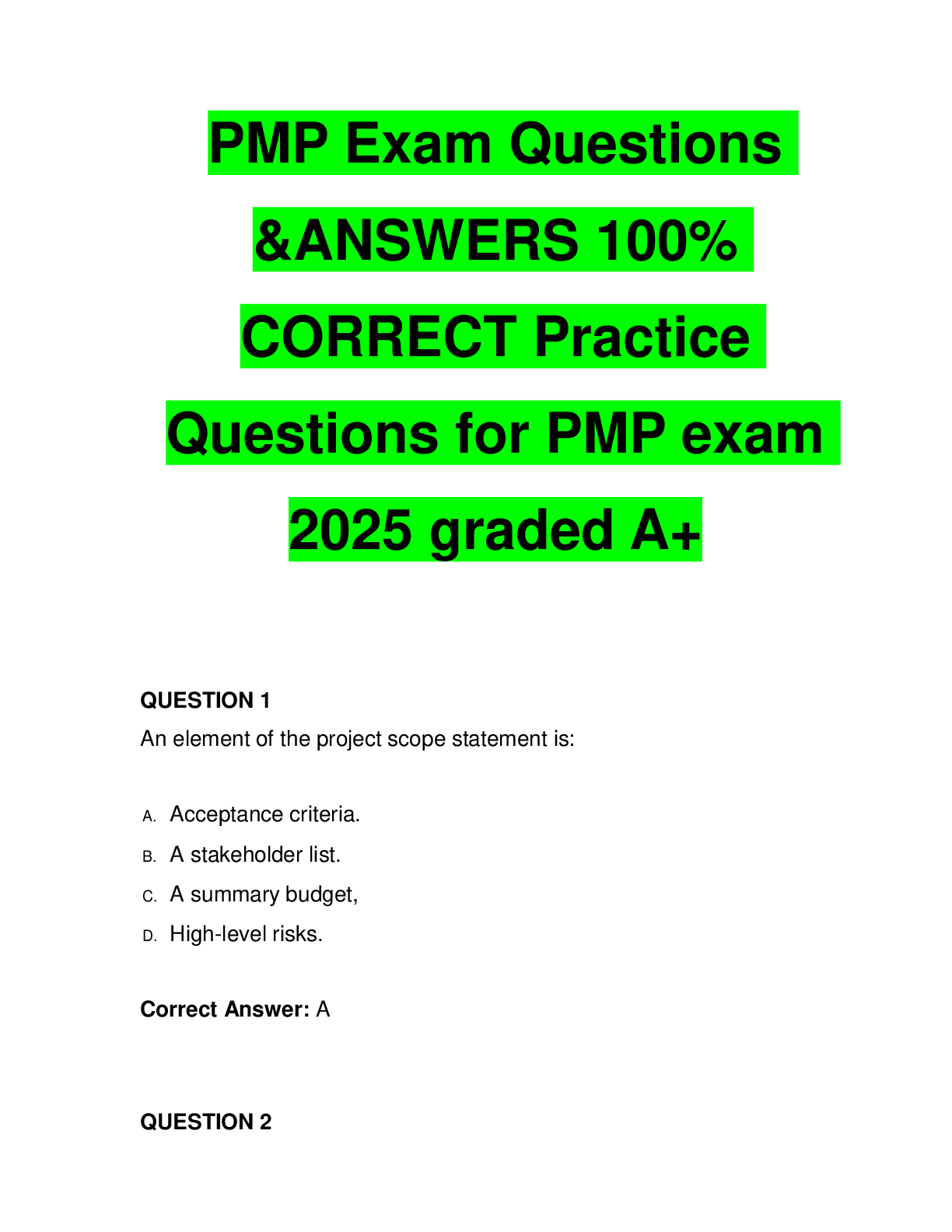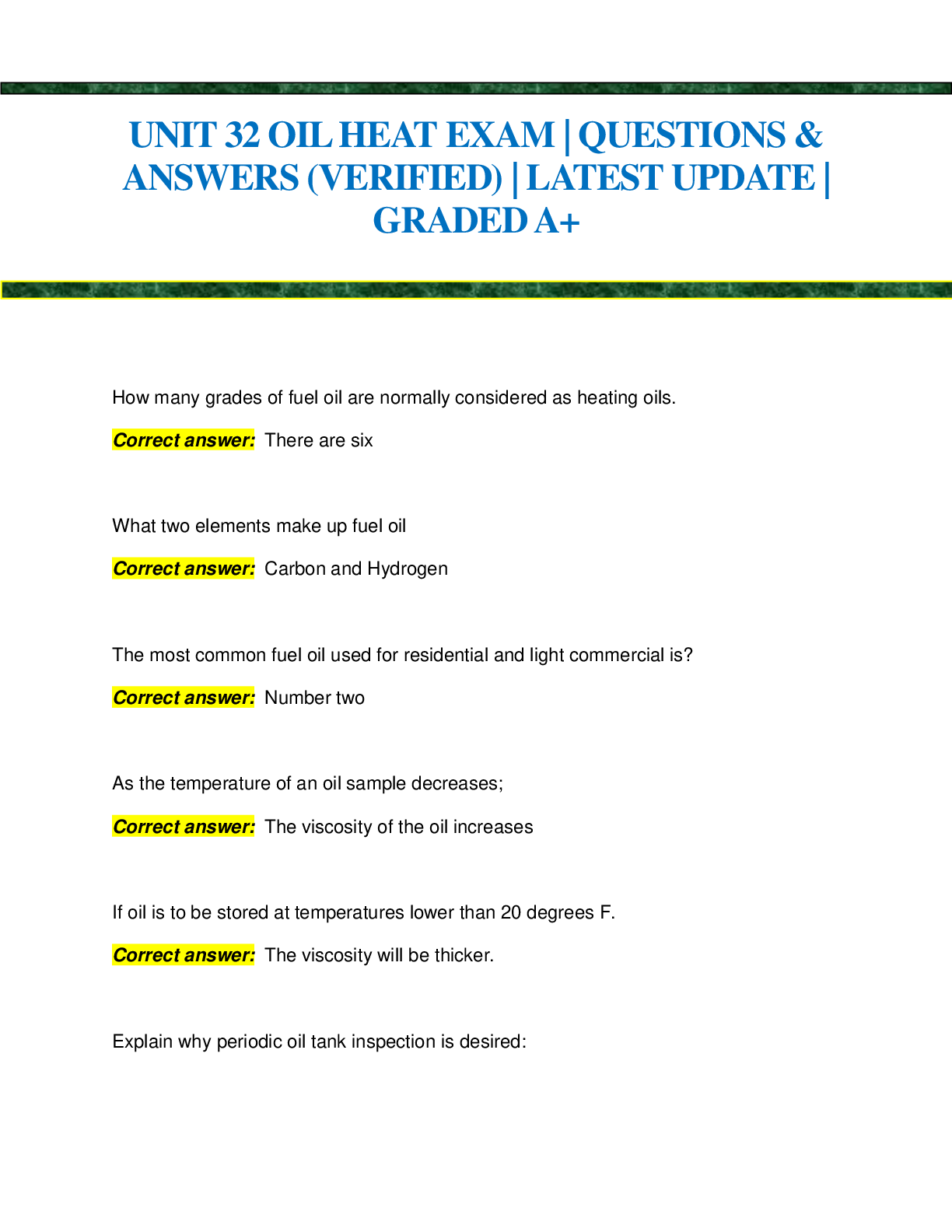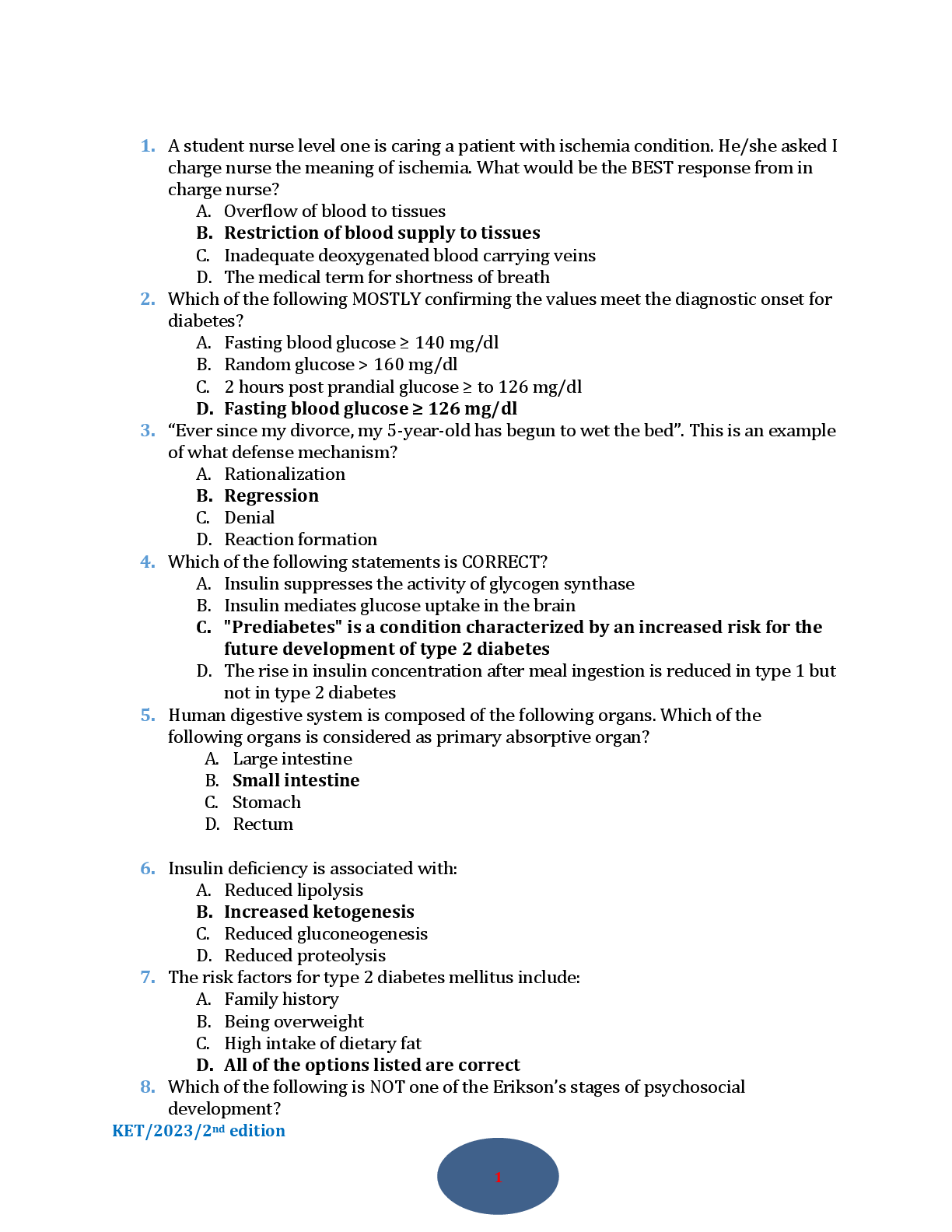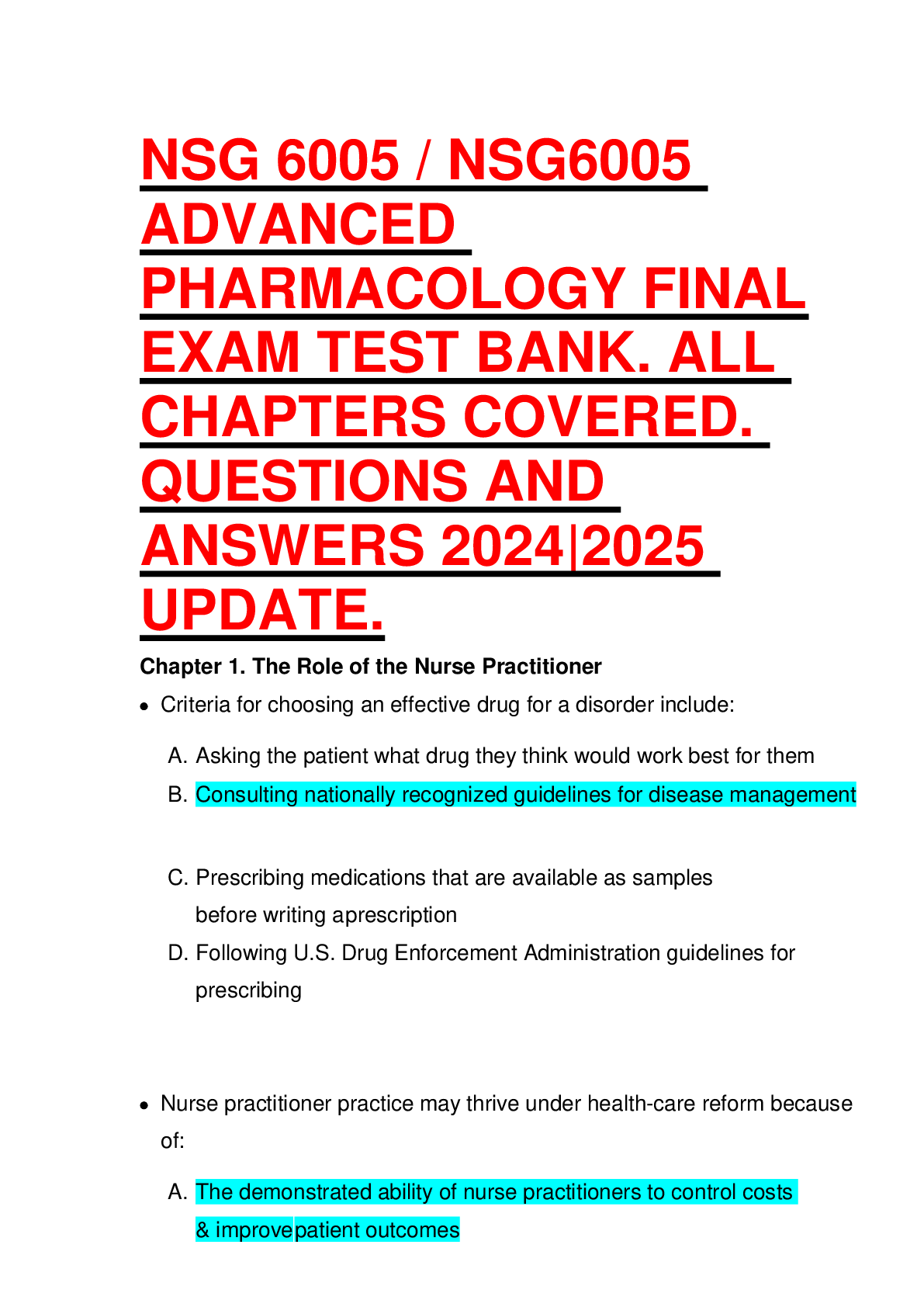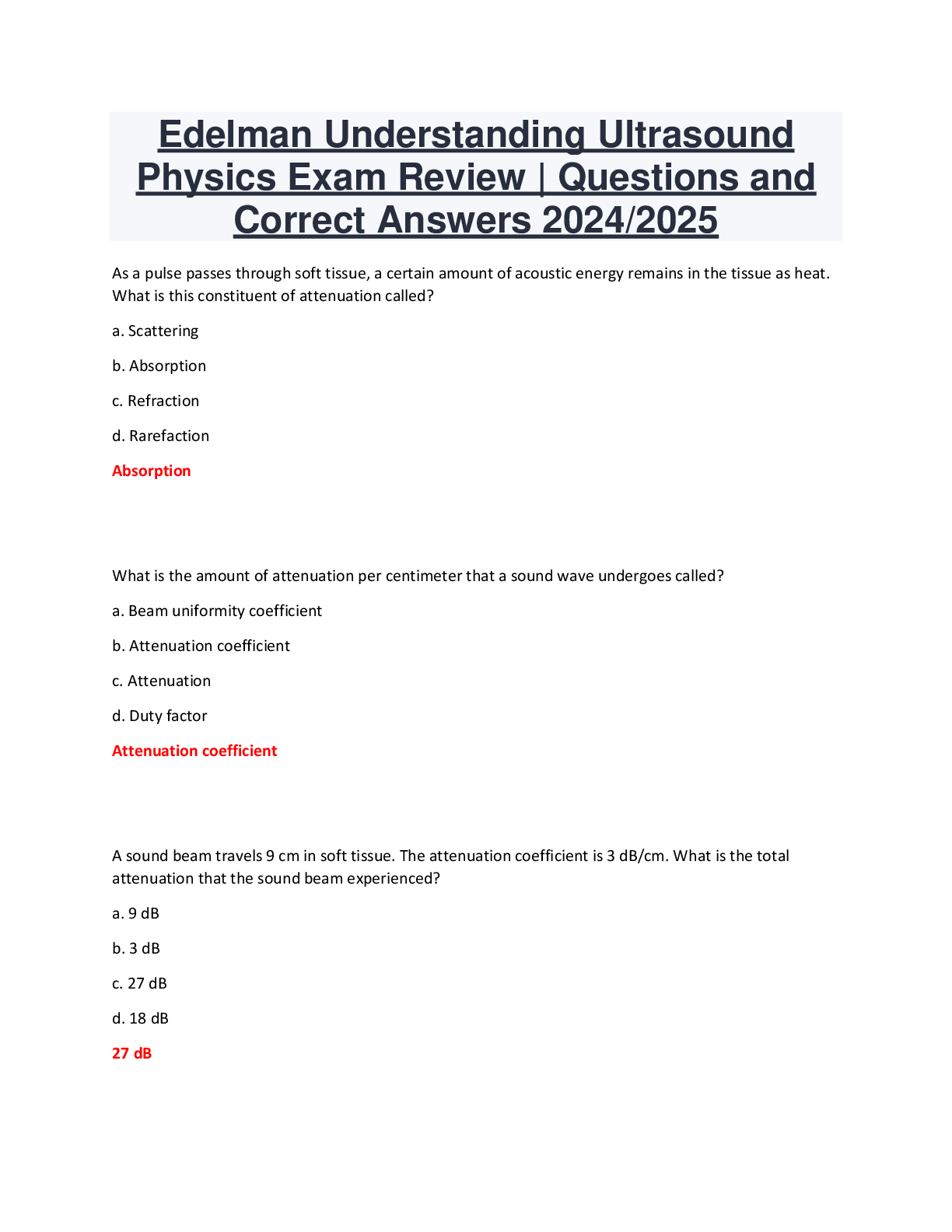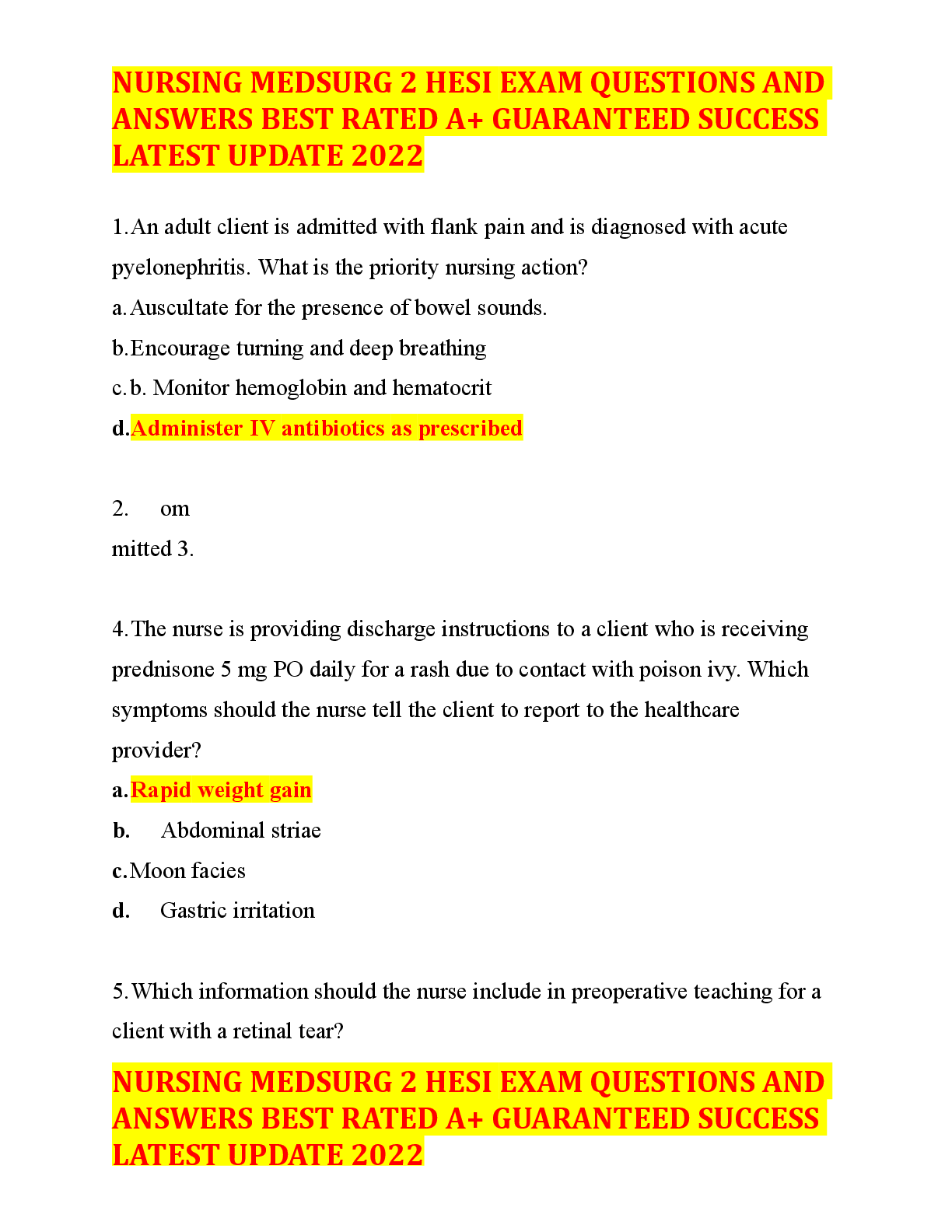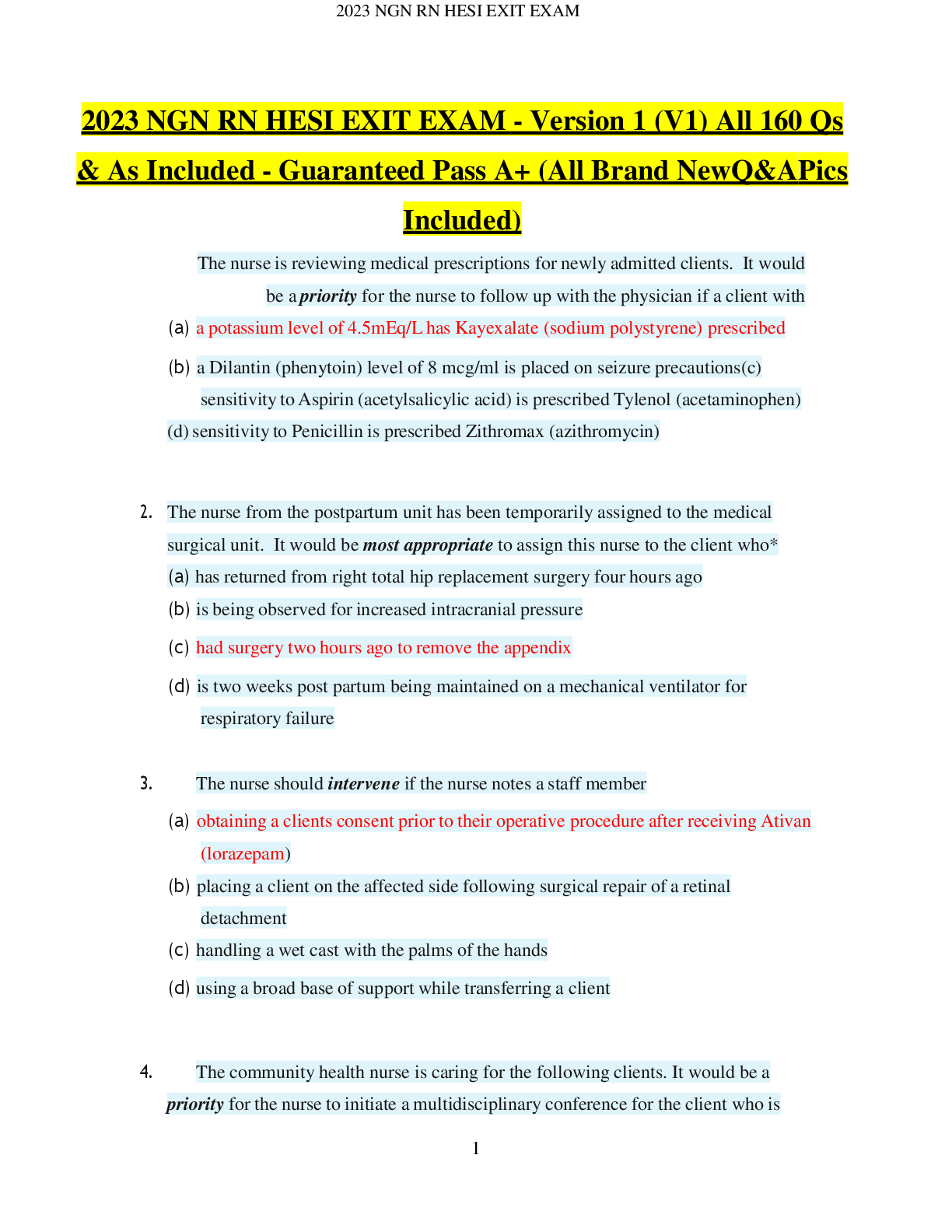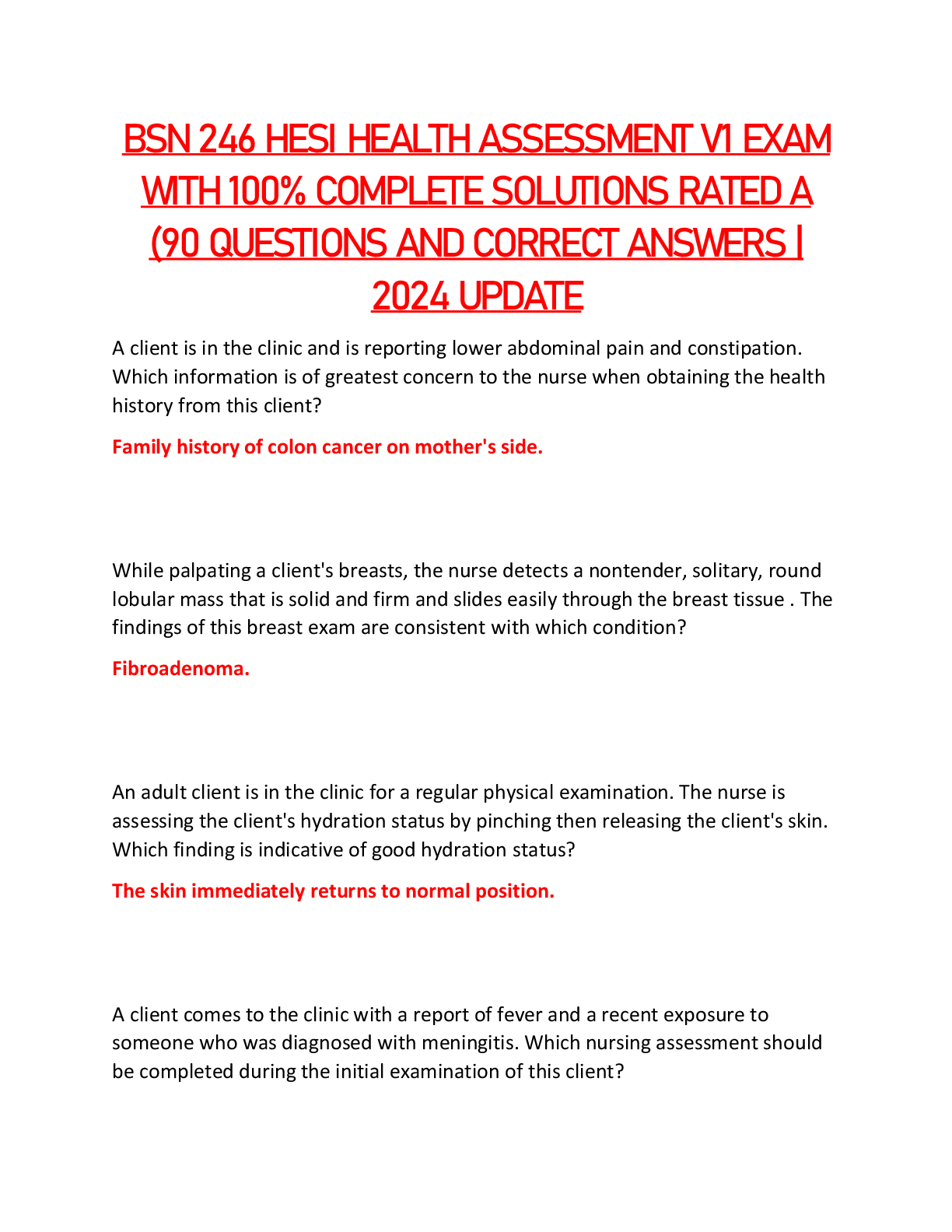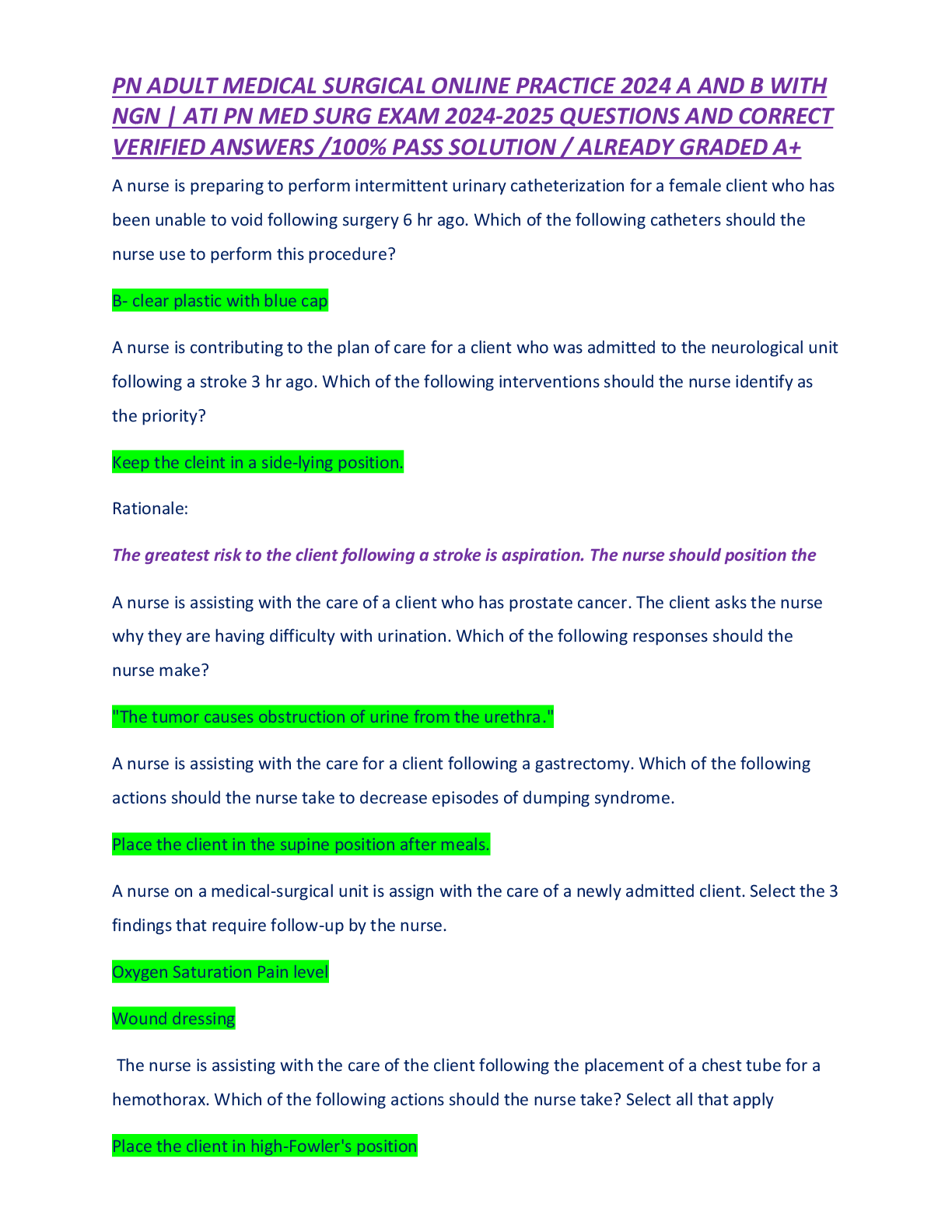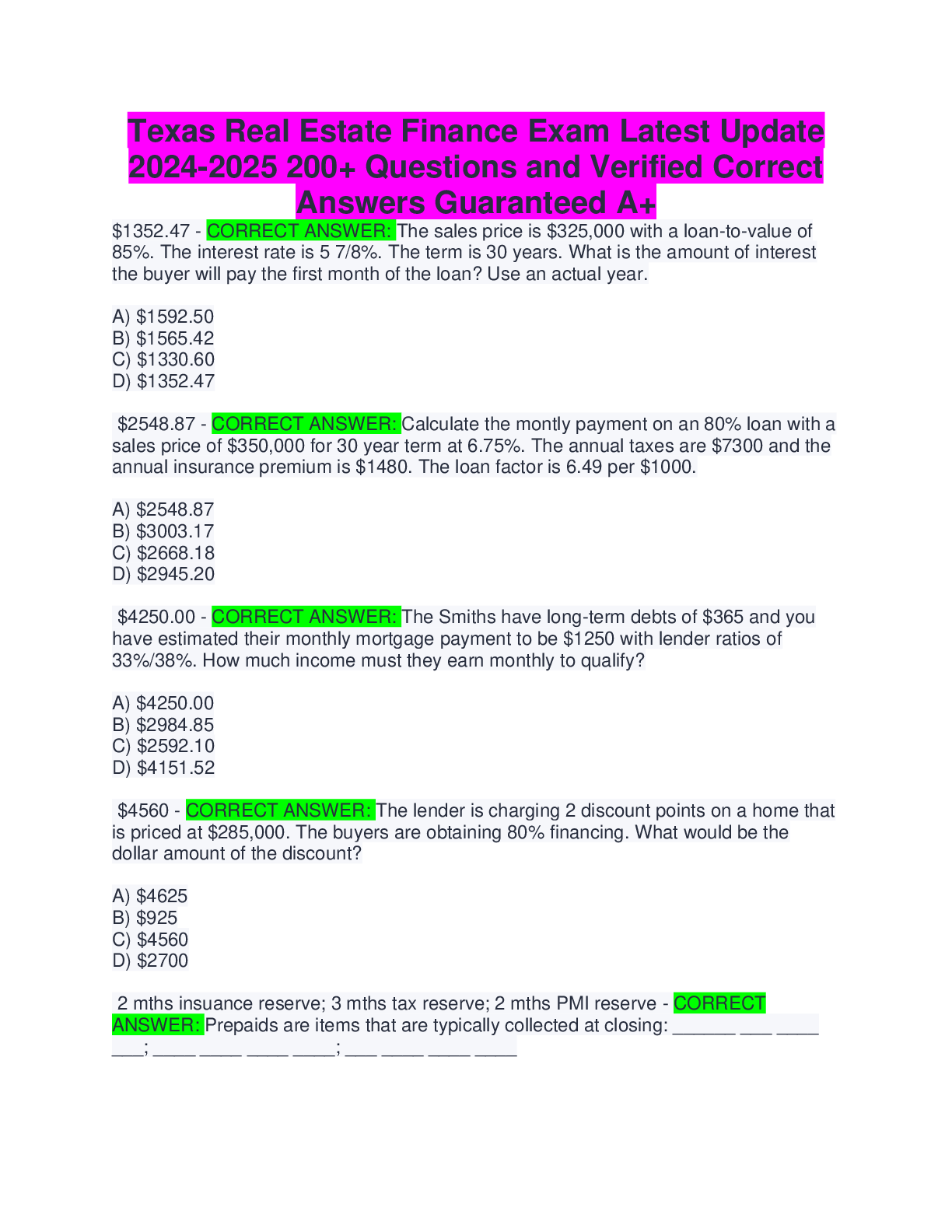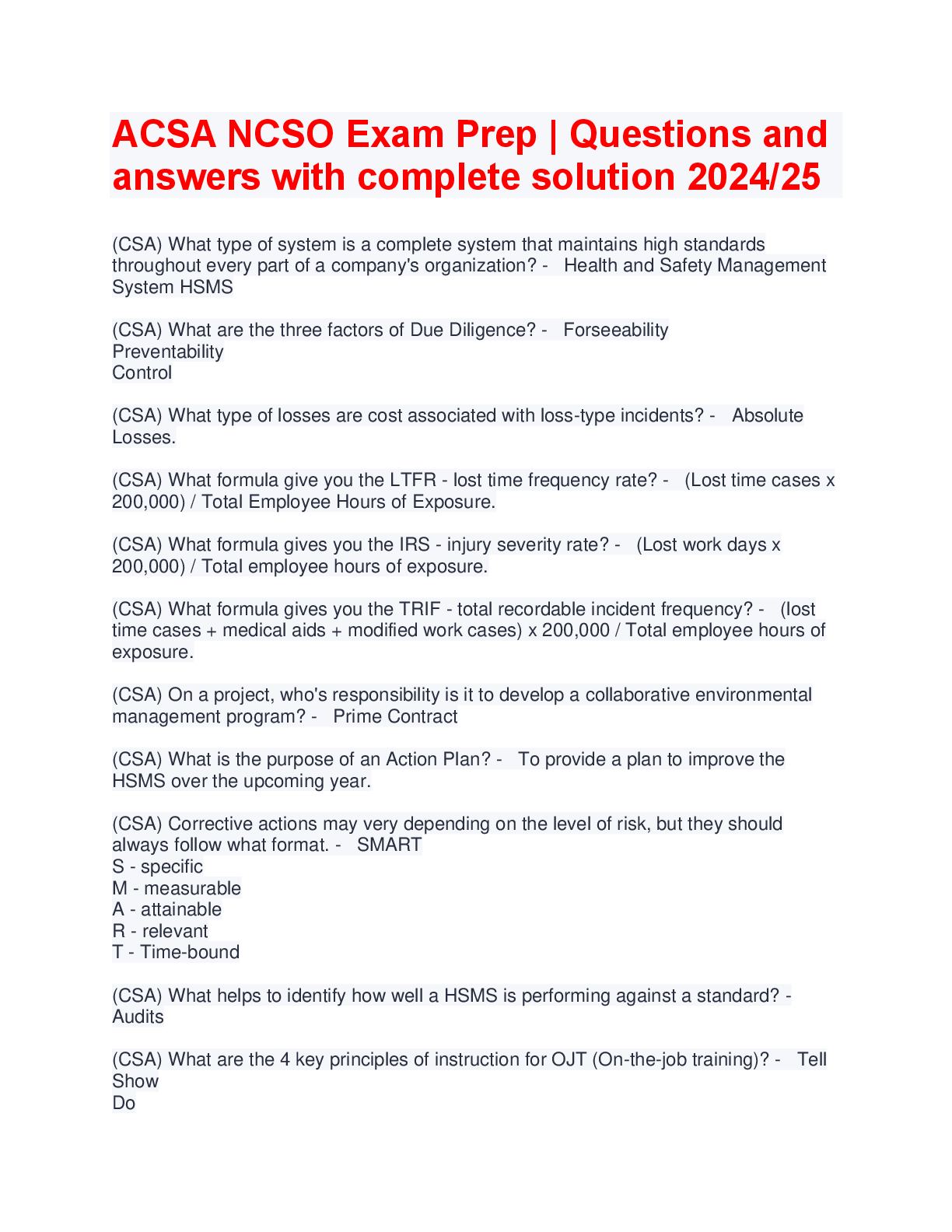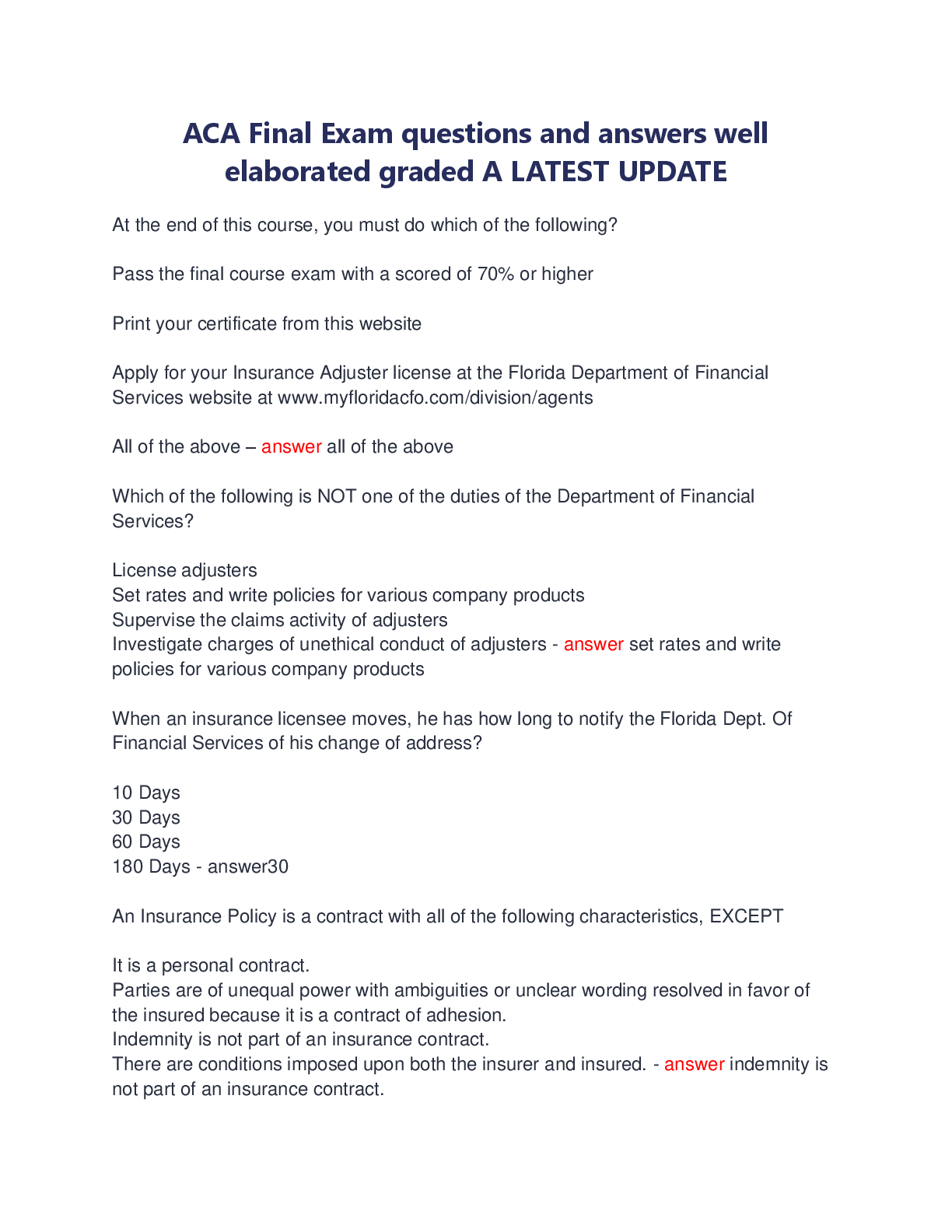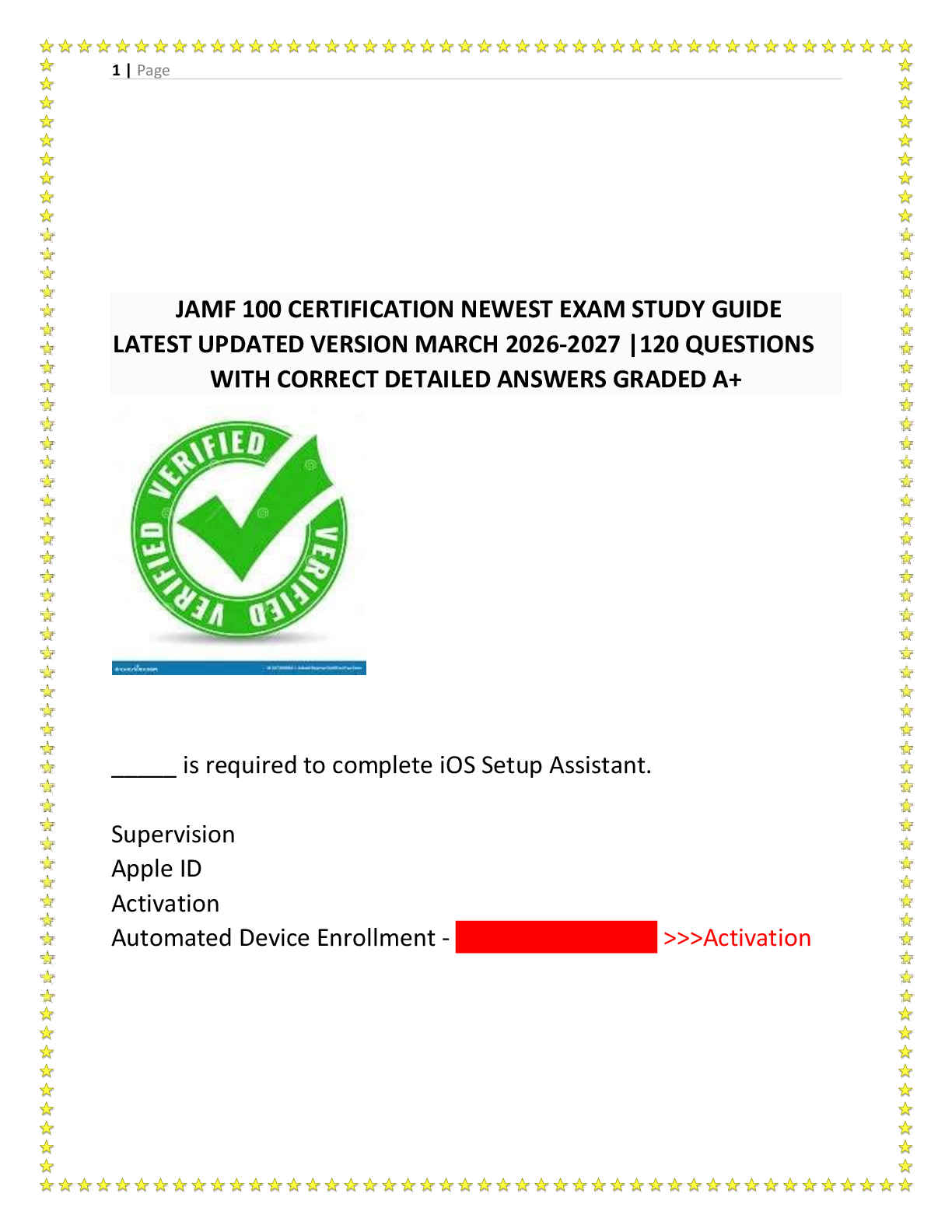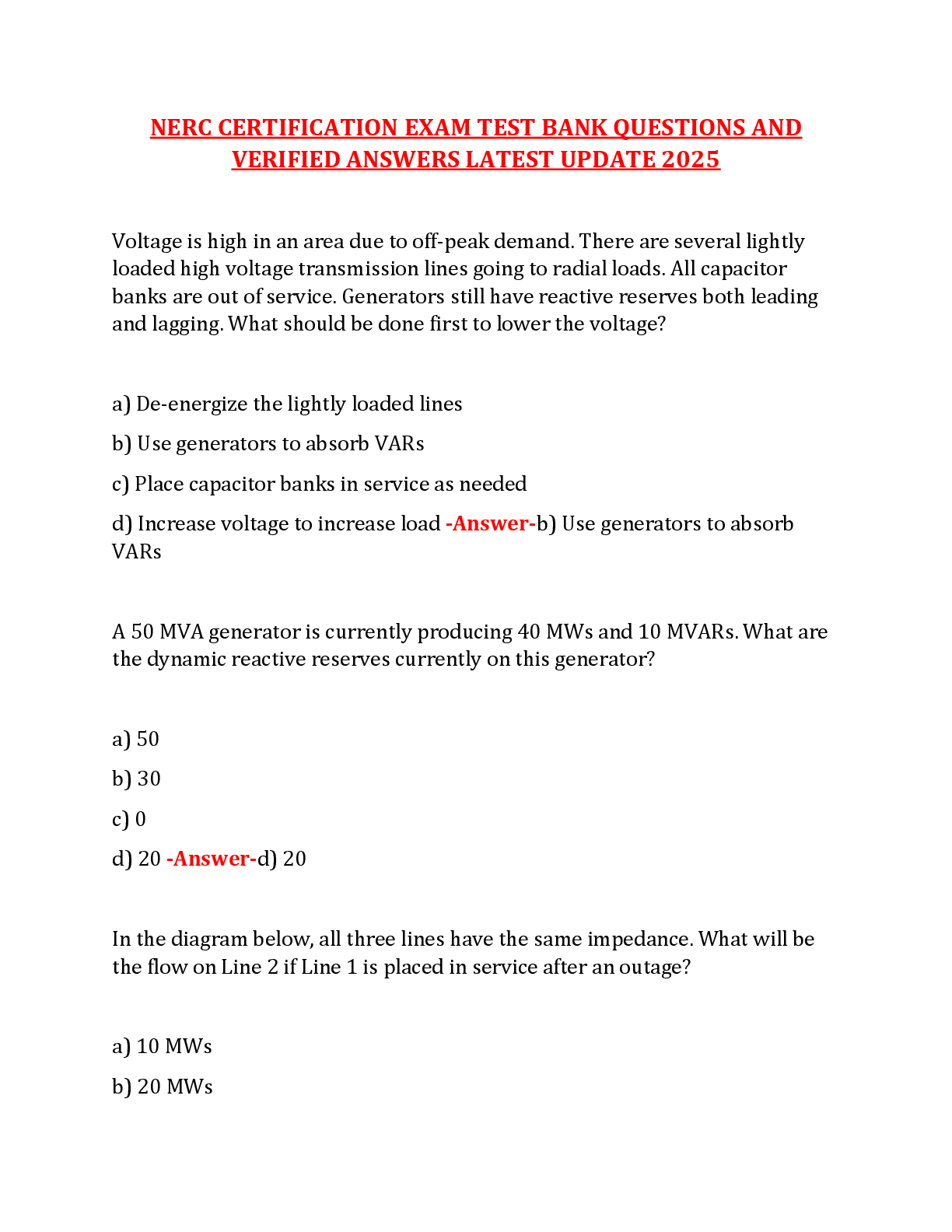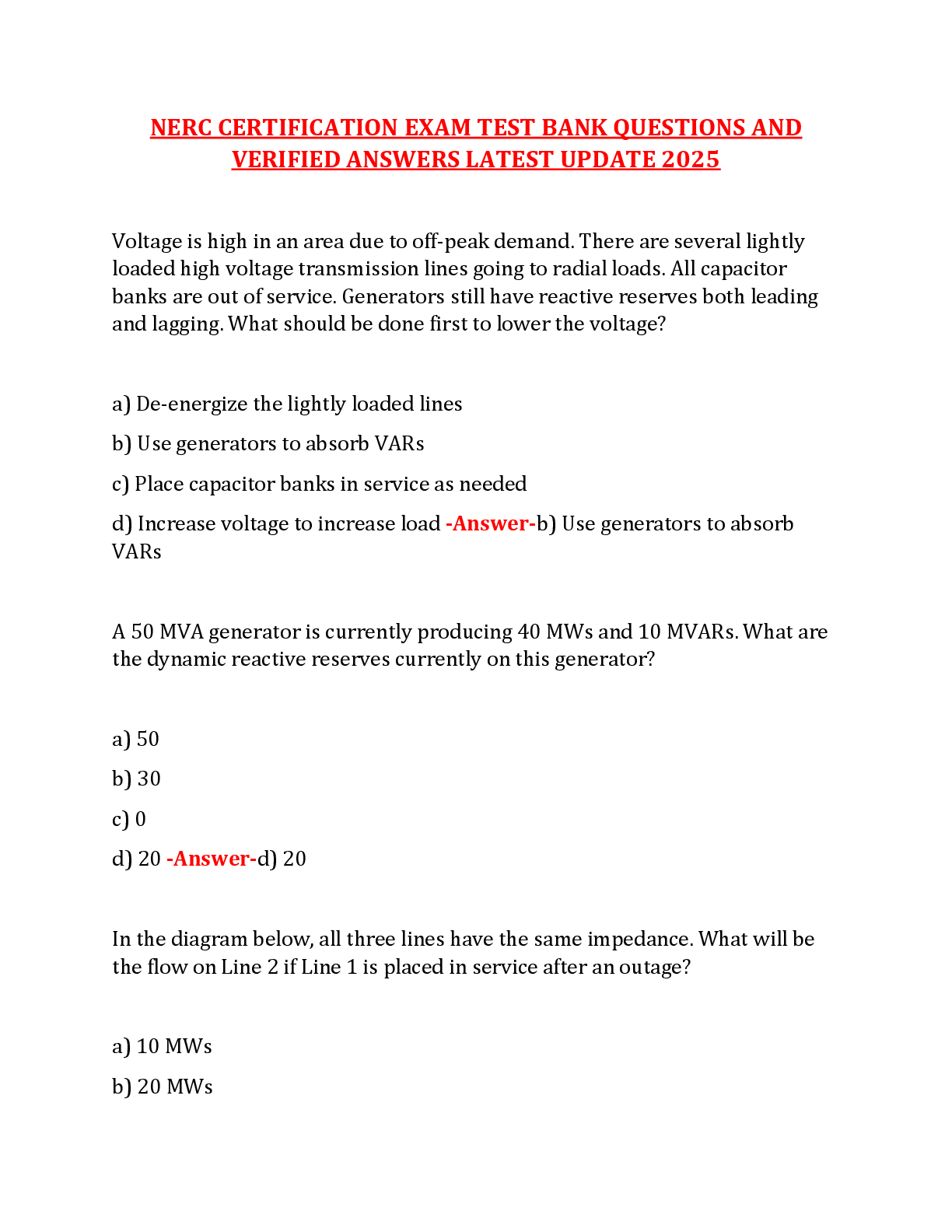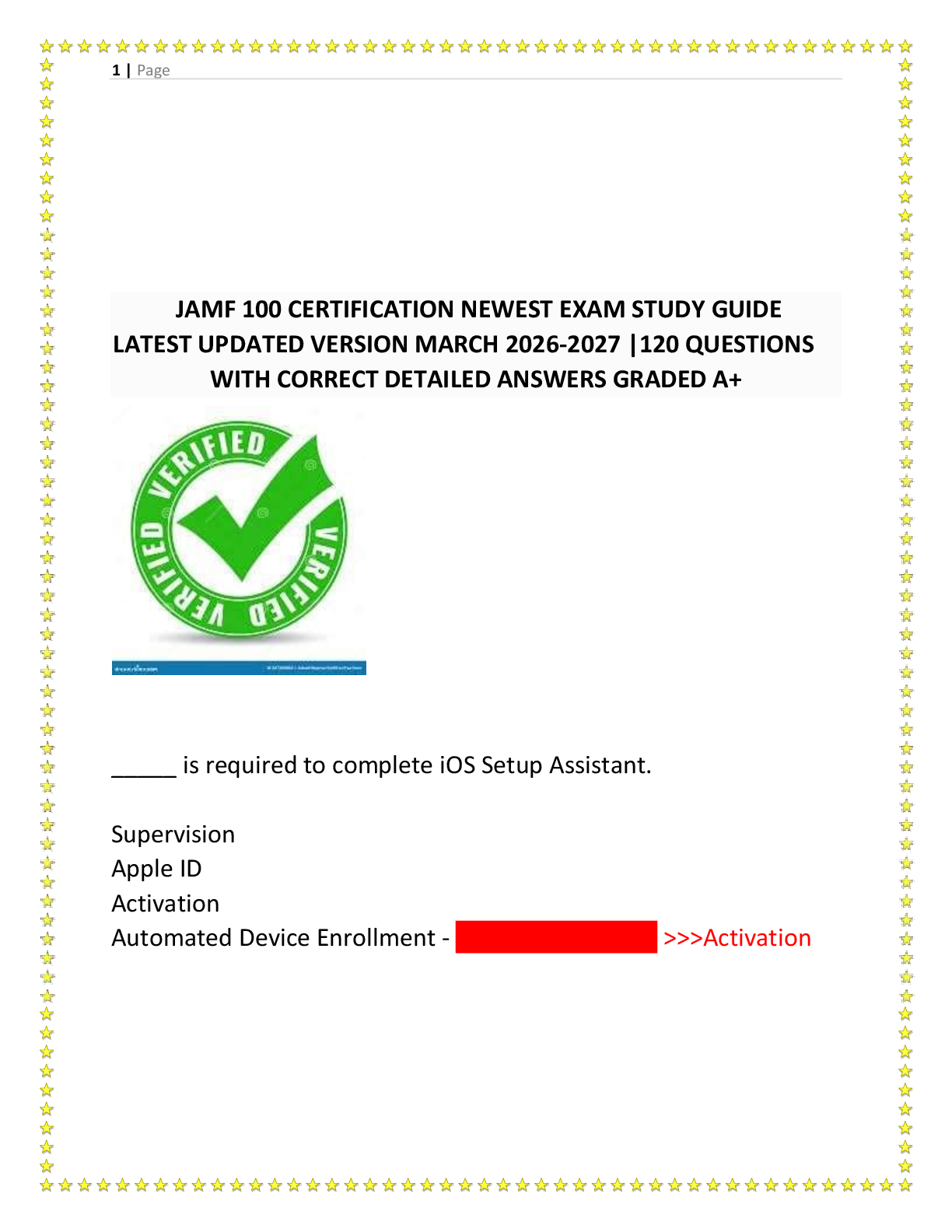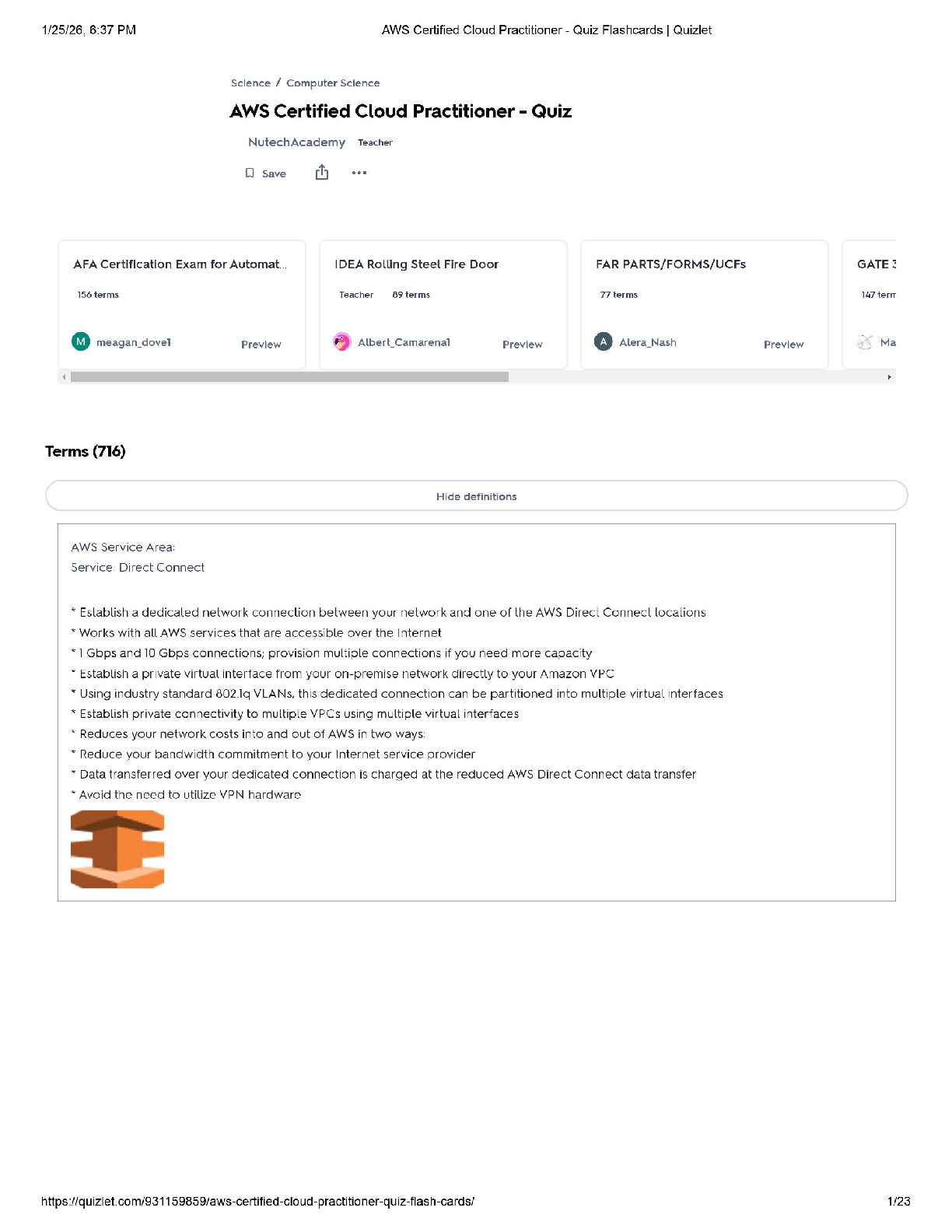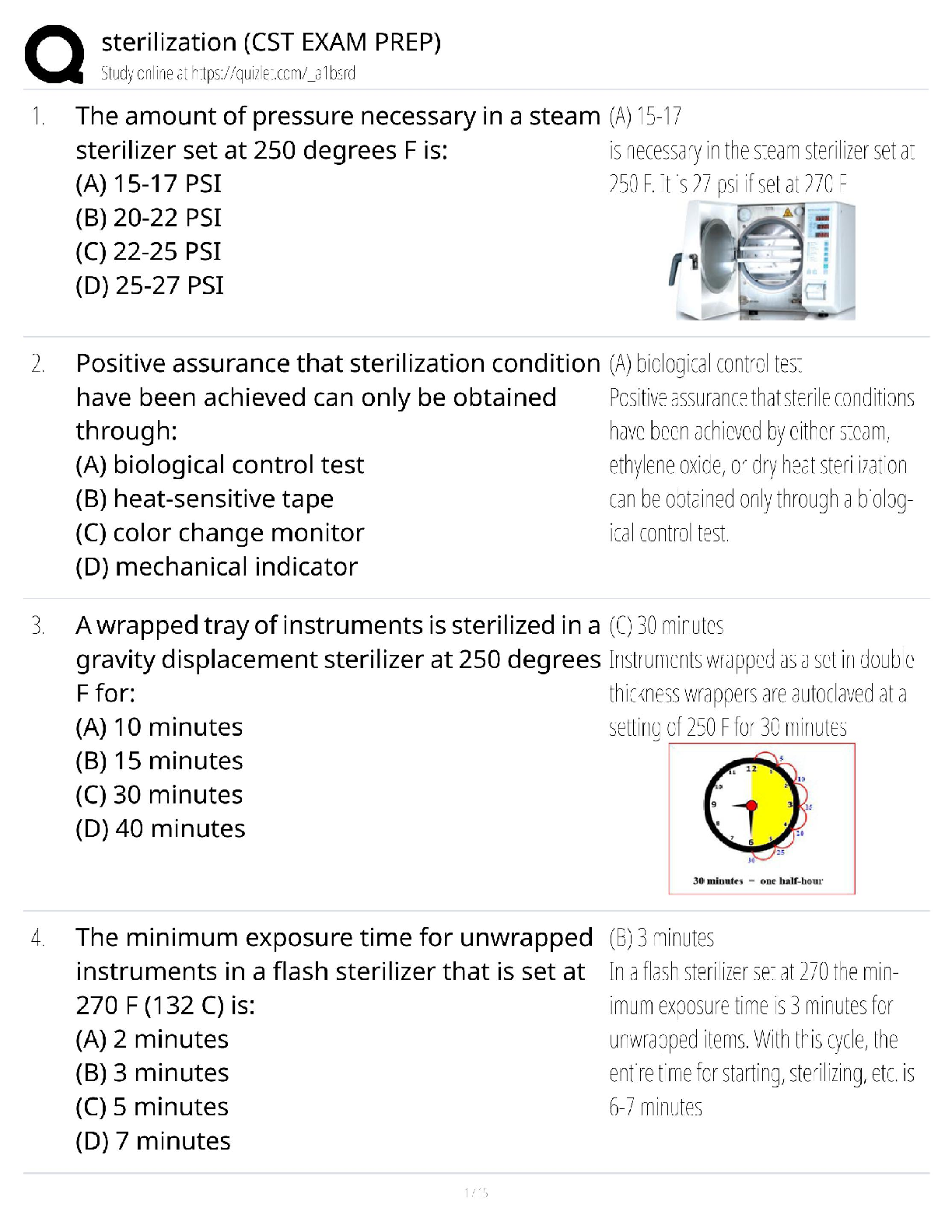E. Physical inactivity - ✔✔- ANS: 1. A 35-year-old male sees you for a routine health
maintenance visit. He has gained a few pounds over the past few years. He is 173 cm (68 in)
tall and weighs 82 kg (181 lb), giving h
...
E. Physical inactivity - ✔✔- ANS: 1. A 35-year-old male sees you for a routine health
maintenance visit. He has gained a few pounds over the past few years. He is 173 cm (68 in)
tall and weighs 82 kg (181 lb), giving him a BMI of 27 kg/m2.According to current American
Diabetes Association guidelines, which one of the following additional factors would warrant
screening him for prediabetes and diabetes?
D. 200 mg/dL - ✔✔- ANS: 2. An obese 58-year-old male comes to your office with a 2-week
history of fatigue associated with polyuria, polydipsia, and weight loss. You suspect he has type
2 diabetes. This diagnosis would be corroborated by a random glucose level greater than or
equal to a threshold of
D. Pioglitazone (Actos) - ✔✔- ANS: 3. A 66-year-old male who was hospitalized because of a
TIA 3 months ago sees you for a follow-up visit. His past medical history is notable for impaired
fasting glucose and hypertension. His current medications include valsartan (Diovan), 160 mg
daily; rosuvastatin (Crestor), 20 mg daily; and aspirin, 81 mg daily. On examination his BMI is 30
kg/m2, his blood pressure is 134/86 mm Hg, and he has brown, velvety, hyperkeratotic plaques
on the back of his neck and in his axillae. Laboratory studies are notable for an LDL-cholesterol
level of 85 mg/dL, an HDL-cholesterol level of 35 mg/dL, and a serum triglyceride level of 174
mg/dL. His hemoglobin A1c is 7.1%.
Which one of the following agents may reduce his risk for stroke and myocardial infarction?
C. 140-180 mg/dL - ✔✔- ANS: 4. A 71-year-old male is hospitalized for an infected foot ulcer.
His medical history is notable for type 2 diabetes, hypertension, and chronic pancreatitis. His
medications on admission include pancrelipase (Creon), 72,000 units with each meal;
extended-release metformin (Glucophage XR), 500 mg four times daily; extended-release
glipizide (Glucotrol XL), 5 mg daily; and benazepril (Lotensin), 40 mg daily. Insulin therapy is
initiated for hyperglycemia with persistent blood glucose levels ≥200 mg/dL.
Based on American Diabetes Association guidelines, which one of the following would be the
most appropriate glycemic target for this patient during his hospitalization?
C. Combined aerobic and resistance training results in greater glycemic improvement than
either method alone - ✔✔- ANS: 5. An obese 53-year-old male with a history of type 2 diabetes
sees you for the first time. He tells you that his previous physician had him see a dietician and
started him on metformin (Glucophage), 500 mg twice daily. A copy of his most recent
laboratory tests shows a hemoglobin A1c of 7.7%. He tells you that he has always been
sedentary and asks if it would be worthwhile for him to join an exercise facility and begin an
exercise program.
Which one of the following statements would be accurate advice?
B. SSRIs - ✔✔- ANS: 6. An overweight, sedentary 71-year-old male presents with a 4-month
history of burning pain in the soles of his feet that is most noticeable at night when he is lying in
bed. His medical history includes a long history of type 2 diabetes, hypertension, and
hypercholesterolemia. His curre
[Show More]



